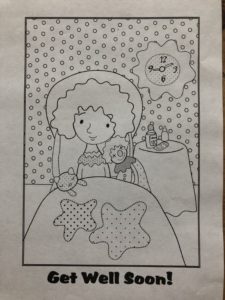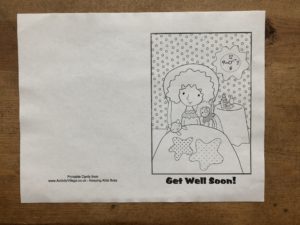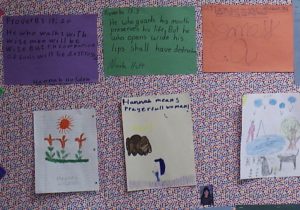Key Verse
“Let the word of Christ dwell in you richly in all wisdom; teaching and admonishing one another in psalms and hymns and spiritual songs, singing with grace in your hearts to the Lord.” Colossians 3:16
Read the Key Verse with your class. After reading the verse with your students use the following definitions to help them understand it a little better.
word of Christ: refers to the revelation which Jesus brought into the world which is undiscoverable except by God and the Scriptures
wisdom: practical wisdom; sound judgment; good sense
teaching: to advise, or put in mind – as a tutor would do
admonishing: to caution or reprove gently; to warn
hymns: a song sung in praise to God
Use this discussion to prepare your students to understand the importance of the Psalms as we begin our study of them. We see in our memory verse that the Psalms are songs sung as praises to God, but they are also to instill wisdom and good judgment in our hearts and minds to teach us how to live.
Summary: Today we continue with the second of the Personal books, Psalms. Psalms is known as the Israelites’ songbook. David is often accredited to as its author. Although he probably wrote almost half of them (about 73), there were other authors, known and unknown. Many of the Psalms were written when different men approached God in prayer because of circumstances surrounding them. You can see instances of great sorrow, admitted sin, repentance, hope and trust in God, faith, and a great love for God. Throughout Psalms, man’s prayers from the heart turn to singing in that prayer – ending with man praising God, revealing that the Psalms are not only prayers from the heart, but songs as well. Some were written in praise and adoration of who God is vs. who man is. So, many of these hymns are rich in Israel’s history. If we know the history, we will better understand the circumstances surrounding many of these songs.
In the book of Psalms, we find God is infinite – sovereign; yet despite man’s failings, God still communicates with man, and allows man to communicate with him.
We will especially see how the Psalms, broken into five books, parallel to the first 5 books of the Bible (the Law). Many believe the 5 books of the Law (Genesis through Deuteronomy) are God’s words to His people, whereas the 5 books of the Psalms are God’s people’s words (prayers and songs) back to God. Each of these five divisions ends with its own doxology (a hymn of praise to God). We begin today with the first book of the Psalms (chapters 1-41) revealing man and God’s dealings with man as compared to the book of Genesis. Remember in Genesis, we saw sin enter into the world, causing separation from God. We also found God actively involved in men’s lives. You may want to review that in Genesis there were 4 main events (the Creation, the Fall, the Flood, and the Tower of Babel) and 4 main people (Abraham, Isaac, Jacob, and Joseph).
Encourage your students to bring their Bibles and use them!
Emphasis: All of God’s Word is important – converting the soul and making wise the simple (Psalm 19:7).
Optional Worksheets to be downloaded:
Lesson 41 – Volume 1 Children’s Worksheet 1
Lesson 41 – Volume 1 Children’s Reinforcement Worksheet 1
Ideas for children:
Stickers always work well with children. Often times I watch Wal-Mart or Oriental Trading Company for specials or deals on things I can use for crafts for Sunday School (i.e. foam sheets, Bible Story scene stickers, crowns, stick on jewels, construction paper, etc.). I keep a stash and when I need something, I go search in my stash! Pinterest always has great ideas!
You could have a coloring sheet that goes with the lesson.
One idea for today’s lesson: (See picture below). For today’s lesson we took an outline of a sheep and filled it with cotton balls to make a fluffy sheep. That was one way to remember that David (who we learned was a shepherd boy) wrote many of the Psalms. You could choose to do a craft that reminds your students of one of the 4 Main Events in Genesis (Creation, Fall, Flood, and Tower of Babel) as we compare them to Book 1 of Psalms.
Mural idea:
Refer to the wall in your classroom that has become a mural.
By now your class should be in a groove as to the direction and areas in which they need to focus and work on to improve their Christian lives. Use this knowledge to help you address specific areas in each lesson that your class can discuss and share as you add new things to your mural. Continue to watch as your class grows in their knowledge of not only God’s Word, but areas in their lives that can be corrected, drawing them closer to the Lord.
Have them each add anything else they may have brought to add to the wall. Encourage everyone to participate.



